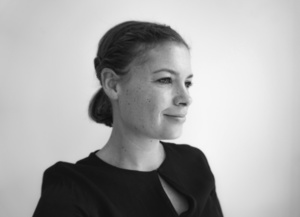
HOW UNDERLYING BELIEFS STOP YOU FROM FINDING THE RIGHT CAREER APPROACH AS AN EXPAT PARTNER
Detecting and challenging underlying beliefs is a vital part of being a coach. Today I want to share with you what an underlying belief is, how you can detect one for yourself and why they play a huge role in the Expat Partner world.
WHAT IS AN UNDERLYING BELIEF?
An underlying belief is an idea, thought, or assumption that we perceive as absolutely true. It is often shaped during our childhood or in early age. Our memories and experiences play a huge role in shaping these beliefs. They are called „underlying“ beliefs as they are most of the time not conscious of our mind.
An underlying belief can be a good and supporting thing, providing us with a framework which gives us security. For many people, their religious belief can be a framework which gives them guidance and direction. However, there are often underlying beliefs that don’t serve us and actually stop us from reaching our goal. They sometimes can narrow our horizon and the opportunities we see in order to reach our goal.
"YOUR FEELINGS ARE A BAROMETER OF YOUR THOUGHTS AND BELIEFS. WHEN YOUR THOUGHTS AND BELIEFS SERVE AND SUPPORT YOU IN ACHIEVING YOUR GOAL, THEY WILL LEAVE YOU FEELING BALANCED AND EMPOWERED. WHEN THERE ARE UNDERLYING BELIEFS AT WORK THAT MAY SABOTAGE YOUR STATED GOALS, YOU WILL FIND YOURSELF FEELING BAD, FRUSTRATED OR DISEMPOWERED."
In the professional world of expat partners, it is often an underlying belief that you can only find fulfillment when you have a work permit or that you only will find a job when you are 100% fluent in the foreign language. External influences such as unfiltered statements by society or own experiences assure us that this is the ultimate truth and stop us from thinking about a creative work around. Underlying beliefs can work as a blockade to the mind, leading us to only one possible solution which is most likely the hardest one instead of thinking in alternatives.
Want some good vibes in your mail?
EXAMPLE OF AN UNDERLYING BELIEF IN THE EXPAT PARTNER WORLD:
„I don’t have the qualifications of working in this country nor am I fluent enough in the language to pursue a career. „
This thought is often shaped by our previous experience and how we define a career for ourselves. For many of us, a career is often associated with responsible roles, full-time jobs, and an adequate salary. As a consequence, the entry barrier in the foreign market seems unbelievable high. Hence, the application process is often frustrating and full of setbacks. In this case, it might be a good exercise to ask yourself:
Is it really true? Is a career only defined by that? What else is important to me work wise? Could there be other entry points such as an internship?
Is there maybe the underlying belief that an internship is only for young professionals and that this would be a too big setback to my career? How is this belief helping or restraining me in gaining a job?

'WE ATTACH OURSELVES TO IDEAS IN ORDER TO CREATE A FRAMEWORK THAT EITHER SUPPORTS OUR GOAL OR EVEN UNCONSCIOUSLY HINDER US FROM TAKING ACTION"
COACHING YOURSELF TO DETECT UNDERLYING BELIEFS
Coaching is a great way to detect those subconscious beliefs that are not serving us. The trained coach can detect those by just listening to your tone, your voice and words that you us. However, if you want to reflect on your own there are a couple of signs that you can pay attention to in your narrative.
OFTEN UNDERLYING BELIEFS ARE SHOWN WHEN:
- Using narrative such as "I really should/need to...." without ever really acting on it
- Using very certain statements such as "That is not me", "I can't do this", "I am not good in this" without really reflecting on it
- Saying "I tried it a couple of times but never succeeded" - ask yourself WHY that can be. What could be the actual underlying belief
- Sabotaging yourself by watching TV all day instead of applying for jobs
HOW TO QUESTION UNDERLYING BELIEFS
There are four basic questions you can use on yourself in order to find out whether there is an underlying belief in play and if so how you can work on it:
- Is it true? Ask yourself that simple question and give it some space before rushing into a quick yes.
- Can you absolutely know that it’s true? Challenge the belief
- How do you react, what happens, when you believe that thought? How does this belief influence your actions on finding your professional identity abroad? How does it change your action plan for the day? How does it influence the way you see yourself and present yourself to others?
- Who would you be without the thought? Imagine how your life would look like without that belief. How would you act? How would you start the day? What energy would be unlocked? What would be your action steps then?
When underlying beliefs are not serving us they lead to a fixed mindset. It leads to a limited set of possibilities to structure your life abroad. A fixed mindset focuses on the things that are NOT possible rather than fostering a creative thinking around.
I hope that post helped you a little bit in your journey and that it set free some thoughts to think of. Let me know what you are thinking in the comments below.
Have a great week!!!
Thanks for sharing the love and stopping by

Share this article with a friend and share the love:
You also might like:

Why career coaching is so essential in times of new work
As a coach, I have seen a visible increase in the need to explore different career options. While some clients are finally planning to tackle going back to work after a long break, other clients are seeking a shift in their current career feeling their skills and values are not matched with their current profession. During the pandemic the buzzword „The great resignation“ came up, illustrating the global need for creating a new work-life balance. In this article, I will highlight some interesting global facts around the topic of the great resignation and explore why coaching is such an essential tool for employees (and potential employees) to gain realignment with their careers.

A Different Approach to Everyday Life: A Return to One’s Own Values Abroad
Living abroad not only opens up a completely new view of the country and its people. The perception of worldwide cultural differences also does something to one’s own ideas. What is desirable? What belongs to the things that are absolutely necessary and what are things that are considered absolutely necessary in one culture and play no role at all elsewhere? This becomes very vivid if you make yourself aware of an everyday situation in a very concrete way. In this article, I look at the different designs of children’s rooms around the world and what this has to do with a return to our basic instincts.

Alltag anders: Die Rückbesinnung auf eigene Werte im Ausland
Das Leben im Ausland eröffnen einem nicht nur eine vollkommen neue Sicht auf Land und Leute. Die Wahrnehmung von weltweiten Kulturunterschieden macht auch etwas mit den eigenen Vorstellungen. Was ist erstrebenswert? Was gehört zu den Dingen die man unbedingt braucht und was sind Dinge die in einem Kulturkreis als unbedingt notwendig angesehen werden und woanders überhaupt keine Rolle spielen? Ganz plastisch wird das wenn man sich einmal ganz konkret an einer Alltagssituation bewusst macht. In diesem Artikel widme ich mich der unterschiedlichen Ausgestaltung von Kinderzimmern weltweit und was das mit dem Zurückbesinnen auf unseren Urinstinkt zu tun hat.

Why less families decide to move abroad
Are families less willed to move abroad in this world of uncertainty? How will expat assignments change within the next year? How to make the decision of moving abroad or working from home in another country? This article is shedding some light on the future of global mobility in the world we are living in right now.

The effect of giving yourself an A
What happens when you pretend the best case scenario already happened? Sharing a fun and compelling coaching exercise called „giving yourself an A“

The 4 types of Female Expats
How differently do women approach the concept of a career abroad? What traits can be assigned to the various international CVs? I spoke with 30 female breadwinners who have made it abroad and identified 4 types that have emerged time and again. In this article, I discuss each type and show what you can learn from them.

